All Categories
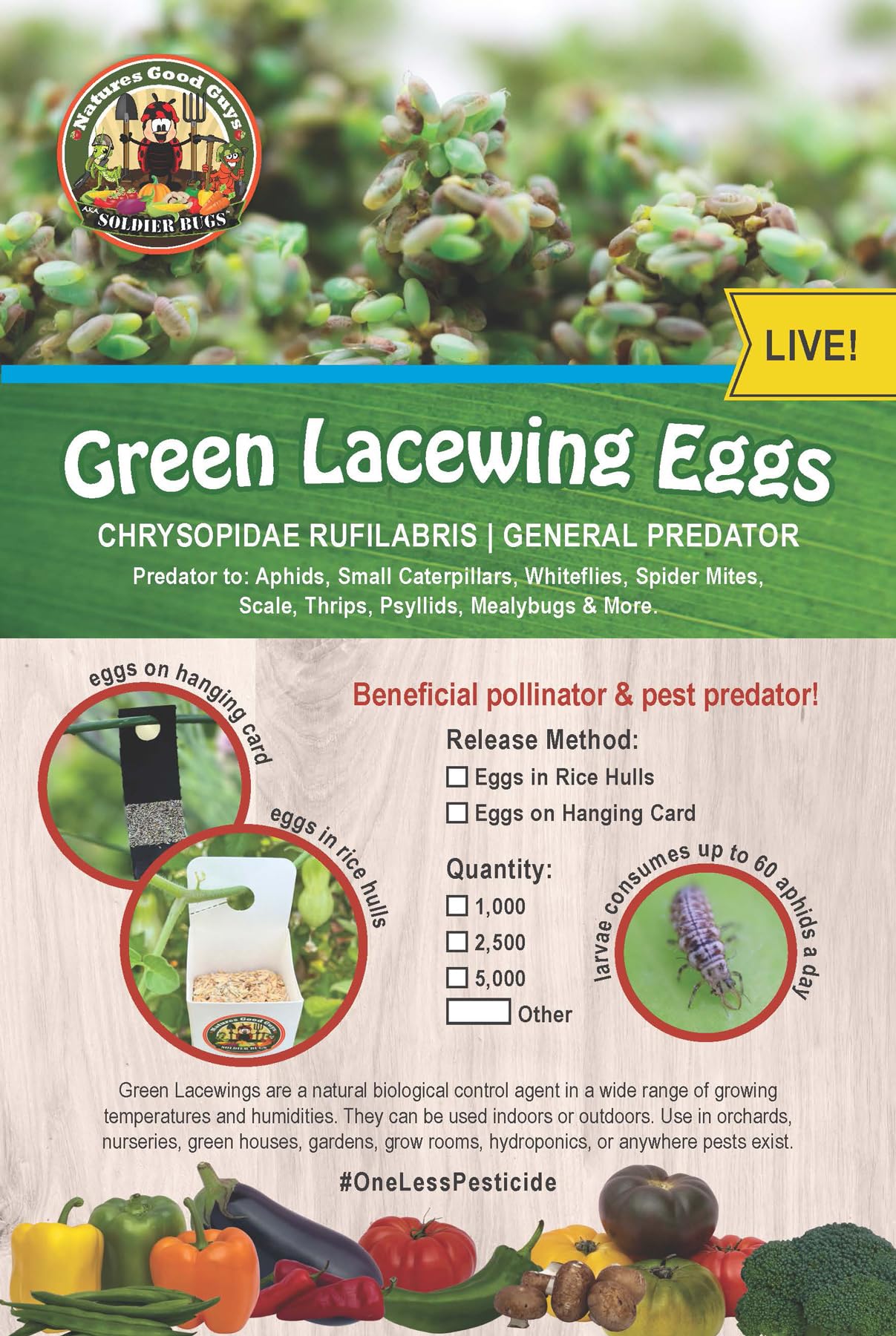



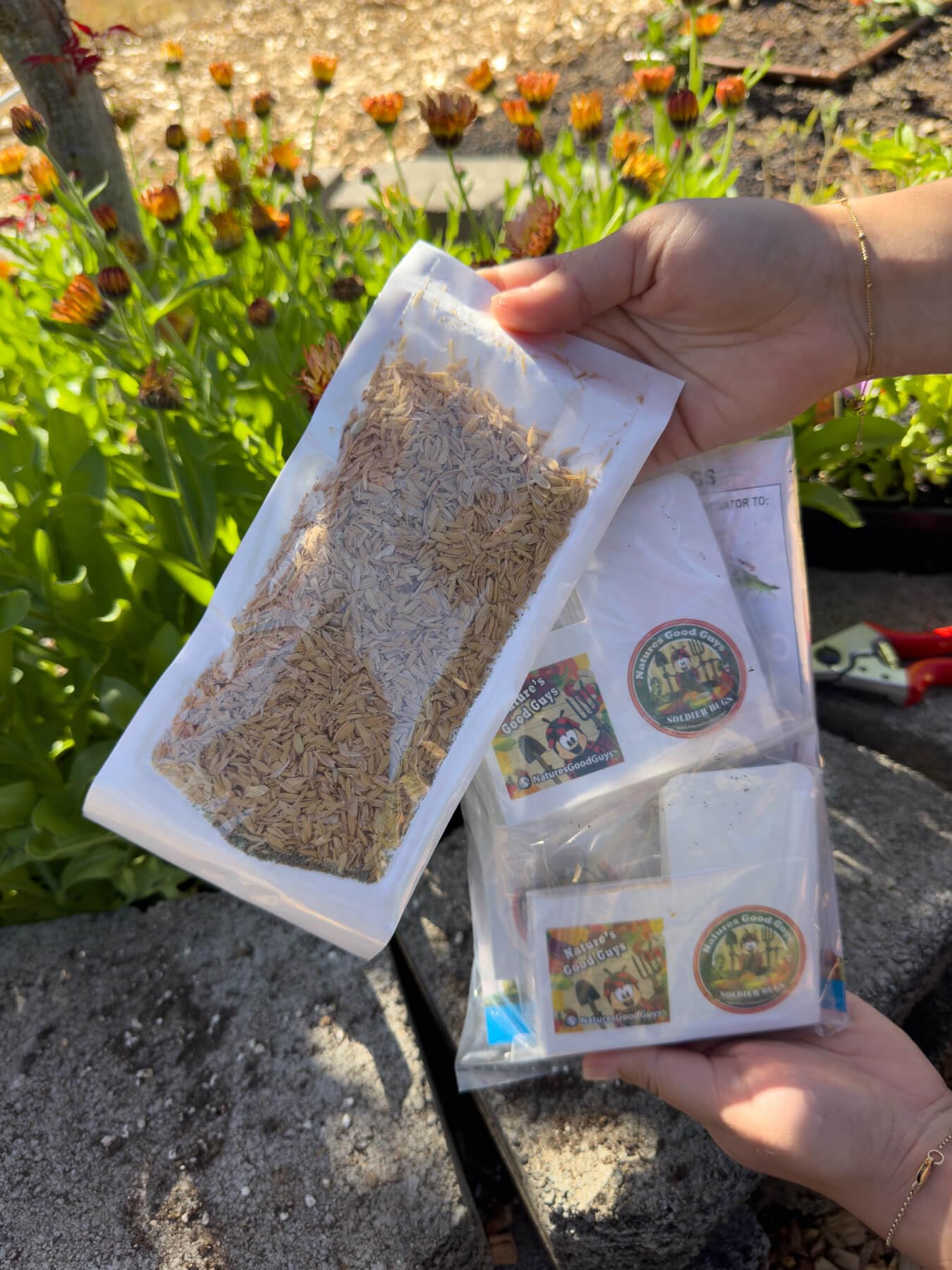
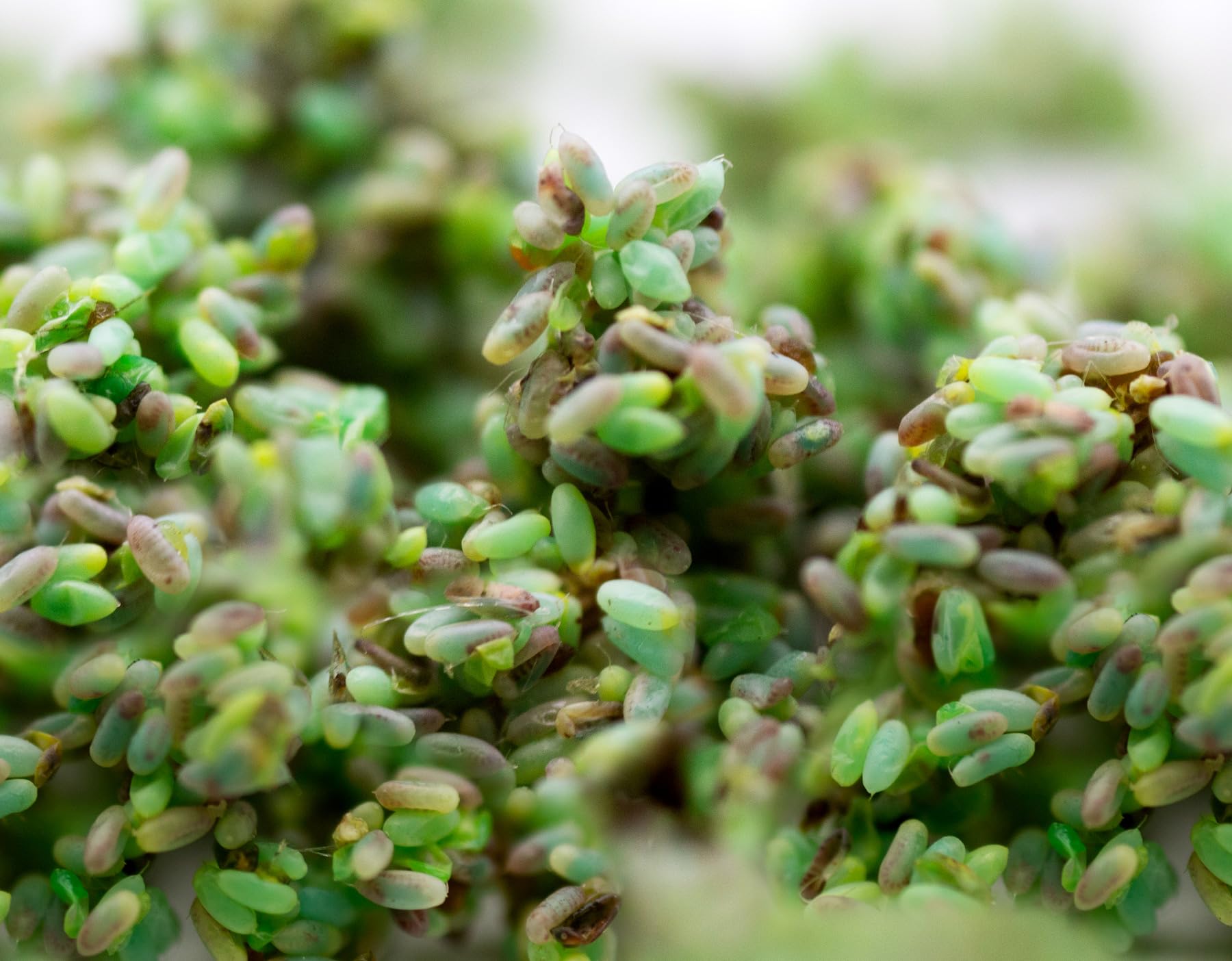
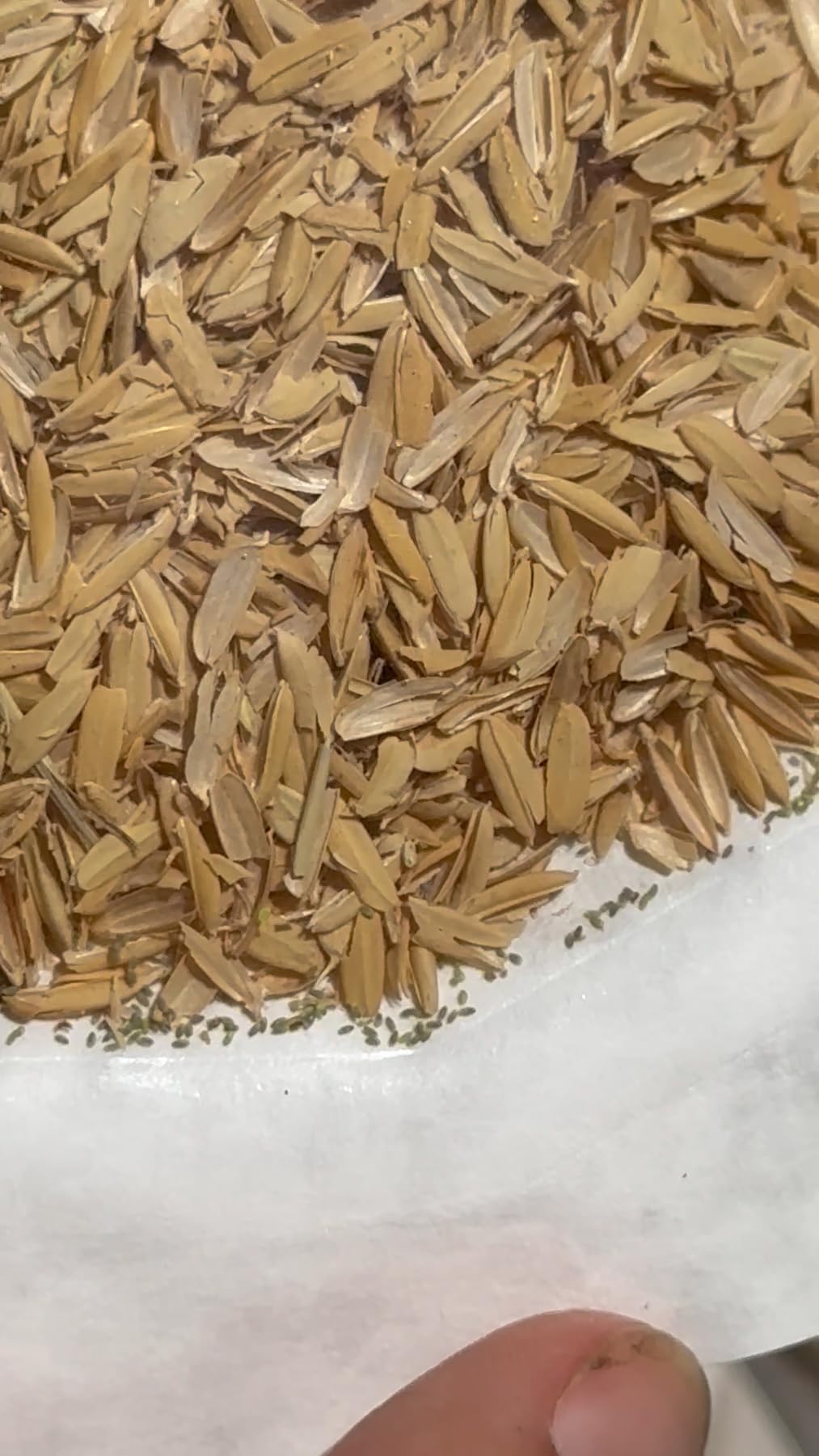
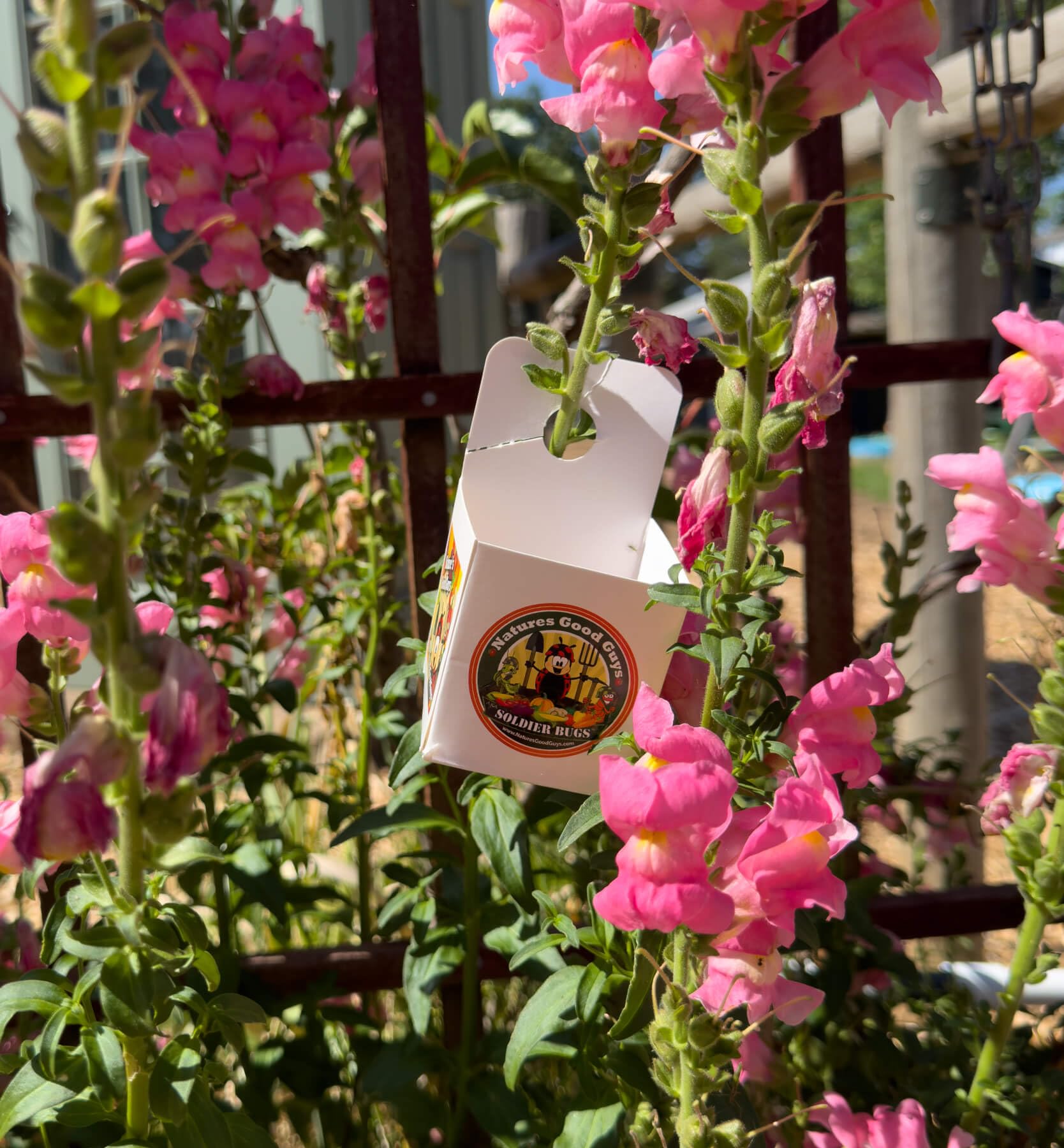








Natures Good Guys - Green Lacewing Eggs Features
-
Live Green Lacewing Eggs
-
Wait to release Lacewing Eggs until you see larvae moving inside package.
-
You can release lacewings with other beneficial insects like Ladybugs and Praying Mantis!
-
Natural Enemy to; Aphids, Leafhoppers, Spider Mites, Mealybugs, Thrips and other Soft Bodied, Slow moving insects.
-
We Guarantee Live Delivery!
About Natures Good Guys - Green Lacewing Eggs
Description We have an everlasting supply of these insects. Farm fresh eggs harvested daily. Simply distribute the rice hulls and lacewing egg mixture into the small hanging bags provided then hang the bag in the infested area. Hang in the shaded part of plant to protect from rain and sun. NaturesGoodGuys, a.k.a Soldier Bugs, Green Lacewings are effective in a wide range of growing temperatures and humidities. Green Lacewings can be used indoors or outdoors. Green lacewings do not migrate, thus making them your best dollar value. Application: 1-5 lacewings per sq.ft. of planted area. Description: lacewings eggs typically hatch within 5 days, depending on the temperature. The lacewing larvae live 15-20 days, pupate and become an adult for 2 months. While as an adult, the lacewings fly around and lay eggs near infested plants. Note: We recommend releasing the same day as received. Release Rates: Interiorscape: 1,000 eggs per 500 sq. feet; Gardens: 1,000 eggs per 2,500 sq. feet; Field Crops: 5,000 per acre.


















